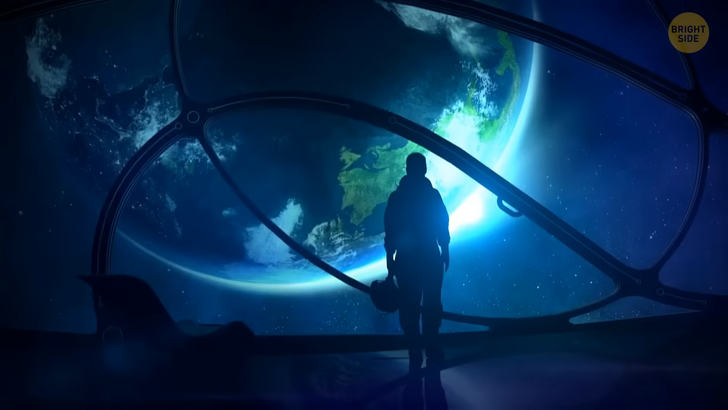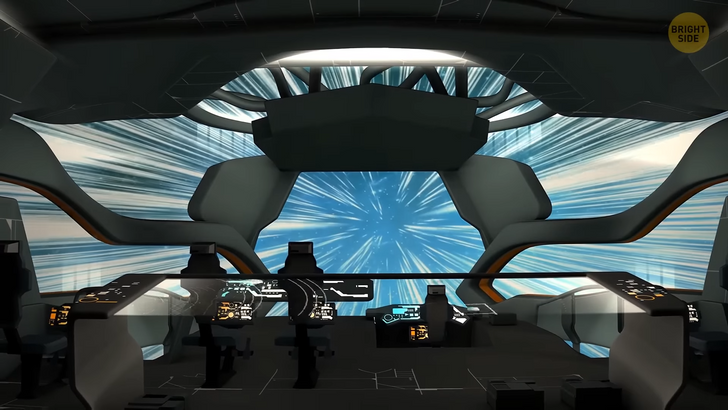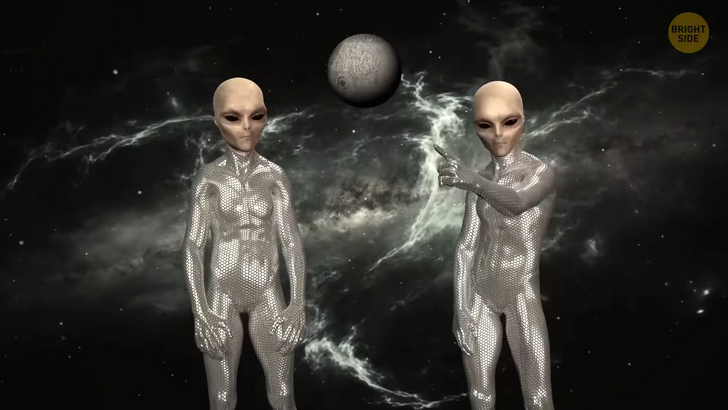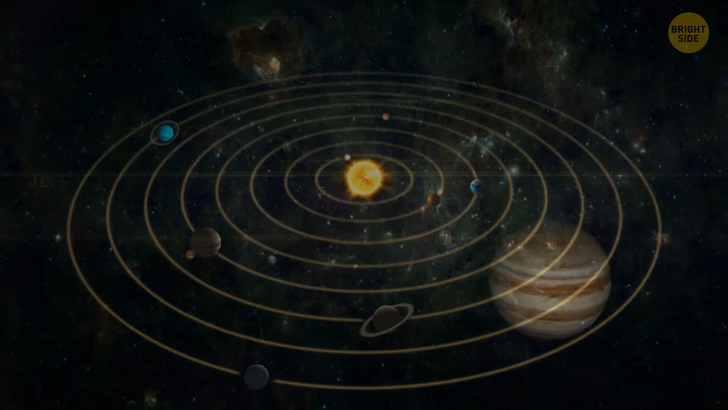I Didn’t Allow My Ex’s New Partner at My Daughter’s Birthday — The Fallout Was Shocking

It’s hard not to wonder if there’s another form of life out there in the Universe when you look at the night sky. There’s this thing called Fermi Paradox. It basically says this: if civilizations that might live somewhere out there in the Universe are so common, why haven’t we found any signs of them? We’ve looked really hard, but we haven’t stumbled over any proof there are other forms of life somewhere in space.
And we suspect there could be many civilizations because scientists have calculated there are possibly billions of habitable planets in our galaxy alone. So it would seem reasonable to assume that some of these planets could have developed intelligent life, possibly even civilizations that are more advanced than ours. So, Fermi Paradox basically asks, “Where’s the party? How come we weren’t invited?” And one of the potential answers to why we haven’t found any other form of life in the Universe is something called the Great Filter theory.

This theory appeared in the 1990s [Robin Hanson, 1996], and it says there’s a big obstacle or challenge that prevents life from being widespread in the Universe. It’s called the Great Filter because it suggests that there is a “filter” that most, if not all, civilizations must pass through in order to become really cool and advanced — like the ones from science fiction movies. But so far, there are no signs of other civilizations like that or even some real evidence of any form of life.
Maybe it’s really hard to evolve into a complex life form, or maybe it’s really hard to develop the technology to travel through space. Either way, it sounds like a tricky obstacle all intelligent civilizations may face, the one that doesn’t allow them to make any progress beyond a certain point.
It means they might have come to a certain level of development, and then something happened that destroyed them, like an asteroid impact or an environmental disaster. Or they could cause their own demise. And — BAM! — everything they’ve achieved is gone. So, the Great Filter suggests there’s some kind of obstacle that stops intelligent civilizations from becoming advanced enough to make contact with other civilizations or colonize other planets.

This theory presents two interesting scenarios. The first one says that the filter lies in our past and that we have already overcome it. This would mean we have passed the hardest phase and the test in general. Woohoo! But it would also mean that intelligent life is relatively rare in the Universe and that we may be the only advanced civilization that exists at the moment. So the Universe could really be relatively empty when it comes to intelligent life. That means the chances we’ll make some friends from other planets and visit them in our super cool spaceships are low.
That’s sad, but the second scenario is a lot worse. It states that the filter could actually lie in our future. We haven’t faced this mysterious and pretty advanced test yet. That means there’s still a chance for us to fail. If the filter really lies in our future, it may mean that there are many intelligent civilizations out there, but they are all struggling to overcome the same obstacles that we could face sooner than we think. They may be trying to pass these tests, stay alive, and send us a message that we’re not alone and that they would like to visit us too.
One of the things the Great Filter theory talks about is the development of artificial intelligence (AI). As AI technologies become more advanced, it’s possible that it could pose a threat to humanity or lead to unwanted consequences if we’re not careful enough with it.

There’s still hope, though, not everything is so dark and gloomy! Maybe some civilizations have already passed the Great Filter and are out there in the Universe, and they’ll manage to send us a message. Maybe a life form that is still not bigger than bacteria is somewhere out there.
And they haven’t come to the level where they’re developed enough to communicate with us. Or maybe we’ll be the ones to pass the test and send a message to others one day. Either way, scientists are not giving up. They will keep looking for traces of life all around us in space, especially in our Solar System. And some of their discoveries tell us we may not need to look beyond our own neighborhood to find signs of life.
First, there’s Enceladus, a small moon that circles around Saturn. In the beginning, researchers believed it was just a plain rock covered in ice. But in 2005, NASA’s Cassini spacecraft took photos of geysers of frozen water that were spewed from cracks in the southern part of Enceladus. One of the most likely explanations is that there are oceans of liquid water lying under the frozen surface.

They remain warm because of the gravitational forces between Enceladus and other Saturn’s moons. Water is the key element for the development of life, so... You never know. Also, scientists have discovered the presence of phosphorus on Enceladus, which is another essential element for life to appear. It’s one of the six basic building blocks of life [carbon, hydrogen, nitrogen, oxygen, phosphorus, and sulfur], and it plays a very important role in many biological processes [e.g. cell membrane formation, energy transfer]. They believe the phosphorus probably comes from the moon’s rocky core and is transported to the ocean through hydrothermal vents.
Moving to the next potential location that could contain some form of life — Titan, Enceladus’ big brother. It’s the only moon in our Solar System that has clouds and a dense atmosphere you’d normally find on planets. And it’s the only known place in our Solar System — except for Earth, of course — that has liquid lakes. Filled with methane and ethane — liquid natural gas — but still. Titan is a world that resembles Earth the most.
Scientists even believe that conditions there are similar to those Earth had in its early years. Our home planet is closer to the Sun, though, so it’s always been warmer. Titan might also have an underground ocean of liquid water beneath its surface. We can’t miss Mars when we’re talking about the possibilities of life in space. One of the main pieces of evidence is methane scientists found on the Red Planet. Methane is a gas that can be produced by living organisms, think cows, so it might be an important sign. They have also found organic compounds on the surface of Mars, which are the building blocks of life.

Another promising discovery on Mars is liquid water. There could be a lake located under a polar ice cap, and scientists believe it could even contain microbial life. Europa is one of the moons that orbit Jupiter. It potentially has plenty of water, too. There could be a salty ocean under its nearly 10 miles thick crust with more water than all of Earth’s oceans contain together.
There’s likely a rocky seafloor at the bottom of this mysterious ocean. The interaction between the rocks and the ocean could create chemical nutrients that organisms — if there are any — need to survive. Europa’s secret ocean probably has hydrothermal vents, too. Those are basically areas where hot water and minerals are released from the seafloor. These vents support a variety of life forms on Earth, so it’s exciting to know that there’s a possibility that similar life forms could exist on Europa as well.

The problem could be radiation coming from Jupiter. It’s really strong and, as such, it can be really harmful to any potential life forms there. Any life on Europa would need to have some sort of shield, so it could survive such intense radiation. Let’s also check the second-biggest Jupiter’s moon, Callisto.
It has many craters, but it’s still one of the most geologically inactive bodies in the Solar System, with no active volcanoes or tectonic activity. That’s why its surface is mostly the same as it was at the time the moon formed, which is why it gives us a unique window into the early history of the Solar System. And you guessed it right: Callisto also has a subsurface ocean that could potentially hold life. Fun to think about, eh?











